Scott Precision's Electrical Resistance wires are specially developed alloy wires which combine the characteristics of a consistent heating effect with excellent corrosion prevention.
Alloys suitable for use from the lowest temperatures up to 1200°C are available. They are manufactured to wire gauges, such as American Wire Gauge (AWG) or Standard Wire Gauge (SWG), metric or imperial diameters or, more commonly, to the particular linear resistance required by you for your component in ohm/m or ohm/foot.
contact us to discuss Resistance Wire
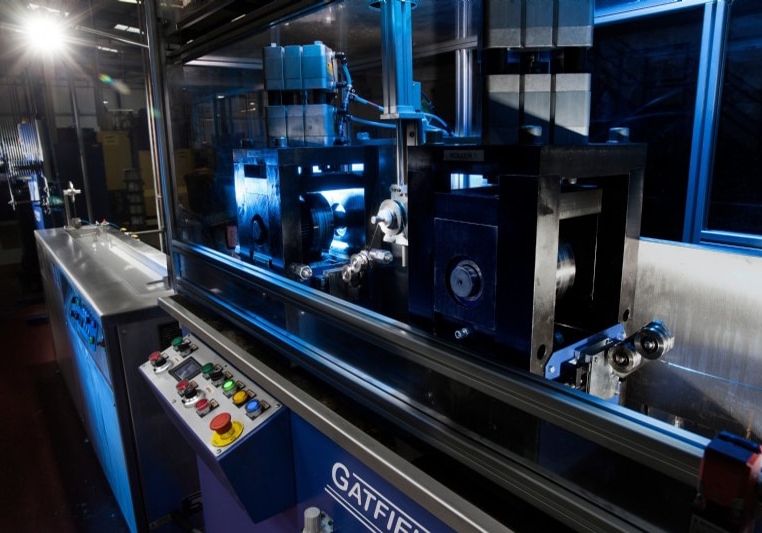
meeting UK wiring regulations
They can be solid, round or flat, bunched or stranded resistance wire from 3.25mm down to 0.06mm in diameter. Some wires even have high-temperature coefficients of resistance, where the resistance increases as the temperature rises, so that they have a small ‘self-limiting’ effect.
This change in resistance, when a wire heats up due to a current or voltage being applied to the circuit, can also be utilised to allow measurement of the temperature the wire reaches during the heater cycle, allowing additional temperature or power control.
Scott Precision resistance wires can be produced to British standards such as BS 115 - "Specification for metallic resistance materials for electrical purposes" and diameters less than 0.32mm BS 1117 - "Specification for bare fine resistance wire for precision electrical equipment" or International standards as well as to customer specifications and requirements.
skilled production techniques
The wire resistance is controlled by utilising skilled production techniques and close monitoring of the diameter. Wires are drawn through tungsten carbide or diamond drawing dies to create the highest quality products.
Such is the requirement to draw precisely the right wire diameter that we have our own die shop facility, cutting and polishing exactly the right die profiles to achieve the resistance specification.
Every reel or drum despatched undergoes a series of rigorous quality checks to confirm the wire complies with the specification.
Information on the diameter, ovality, resistance, reel length and weight are measured and recorded on the centralised computer system, as well as traceability right back to the parent melt, to give our customers the peace of mind that their delivery is exactly what they ordered.
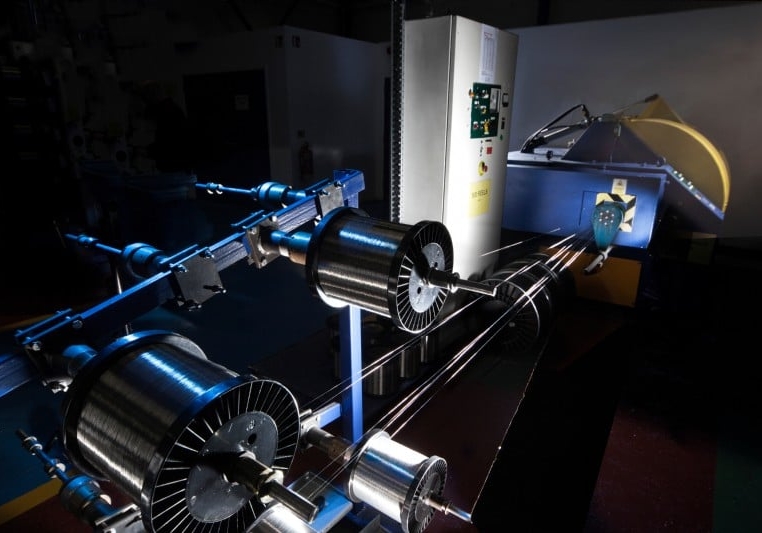
Totally flexible solutions with
any order or sample size
From small, one off samples to large, quality controlled orders, Scott Precision Wire offer the best, not only in quality production but with ongoing technical support all backed up with a strong supply chain, huge stock and multiple years of experience.
stringent mechanical wire testing services
Mechanical tests are also carried out to confirm the wire has been annealed to the correct mechanical strength, elongation or hardness.
Some raw material batches are tested several hundreds of times, starting as a two-tonne delivery and finishing as 5kg reels, so when we say "Wire end-to-end” we can be sure we mean it.
The increasing use of resistance wires in automotive applications for both emissions controls and comfort heating means that being able to manufacture and maintain records in a manner suitable for supply into this industry is a real strength.
wire size calculations for determining an optimum surface area
Help with determining the wire you need is available from the ourTechnical Department. Unbound by the restrictions of a set range of alloys we can advise on precisely the right material and source it from several high-quality alloy casters.
By considering the application we can calculate the optimum cross-sectional area, wire surface area for heat transfer and alloy suitability in each case. Using in-house resistance calculators and detailed knowledge of the alloy properties we can advise on the selection of the alloy whether you are making a domestic electric radiator or a resistance shunt for a power circuit.
Resistance alloys are available covering the complete metallic range from Pure Copper and Aluminium, through Brasses and Bronzes, Copper Nickel Alloys, Pure Nickel Irons, and Nickel Chromes until finally reaching the highest resistance Iron Chrome Aluminium alloys.
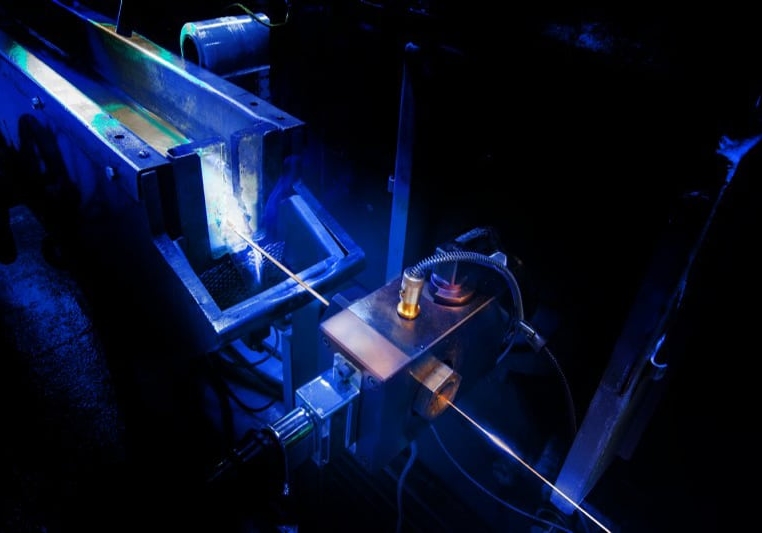
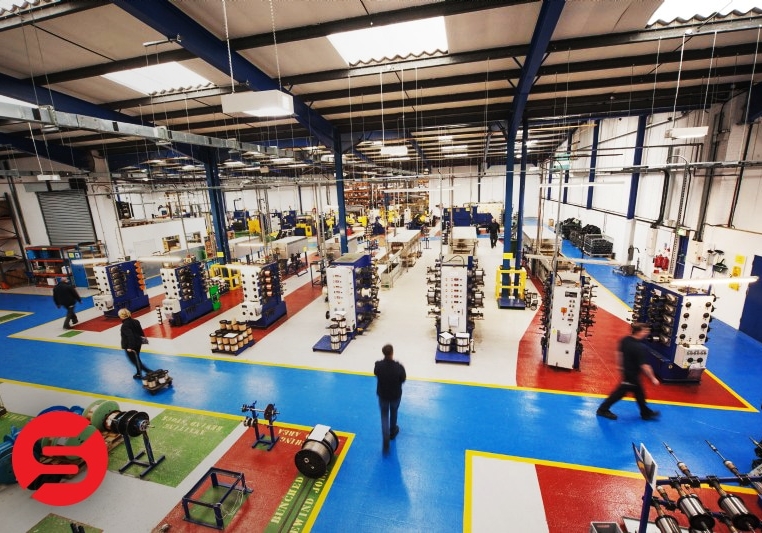
a range of delivery forms
Lower-cost copper wire and aluminium wire have become more popular for low-temperature heating applications, and whilst they do not exhibit the corrosion resistance of the copper-nickel alloy family, the close attention we pay to the manufacturing process means our Resistance Copper wire and Aluminium wire are made to the same tolerances more usually associated with traditional resistance alloys.
Scott Precision resistance wires are available in a range of packaging and delivery forms, from 80mm to 630mm flange diameter reels and drum/pay-off packs or barrels. It is important to match the delivery form to the wire diameter and application and we can advise which one is best for your length and pay-off requirements.
Resistance wires are normally supplied fully annealed. They are strand annealed in furnaces containing an inert atmosphere that produces a wire which is easy to work with and free from oil and grease. The drawing lubricants are specially designed to ‘flash off’ in the furnaces leaving no trace on the surface.
resistance wire inspection regime
Scott Precision Wire can also supply the wire ‘hard drawn’ and, for some sizes, with a lubricated finish. If you require a more specific mechanical yield, elongation or tensile strength range these can also be produced and tested in our laboratory.
The repeated heating up and cooling down resistance wires are subject to during use imparts thermal stresses into the wire. Whilst the alloy combinations have been developed over many years, and ensuring they have low-temperature coefficients of linear expansion has been a key design influence, minimising these stresses will improve longevity.
In cases where it is difficult to replace the heating elements, in underfloor heating cables, for instance, bunching or stranding the conductors will help.
Our stranded and bunched conductors are subject to the same inspection regime as solid wires, so whatever the format, the conductor will exhibit the same consistency.
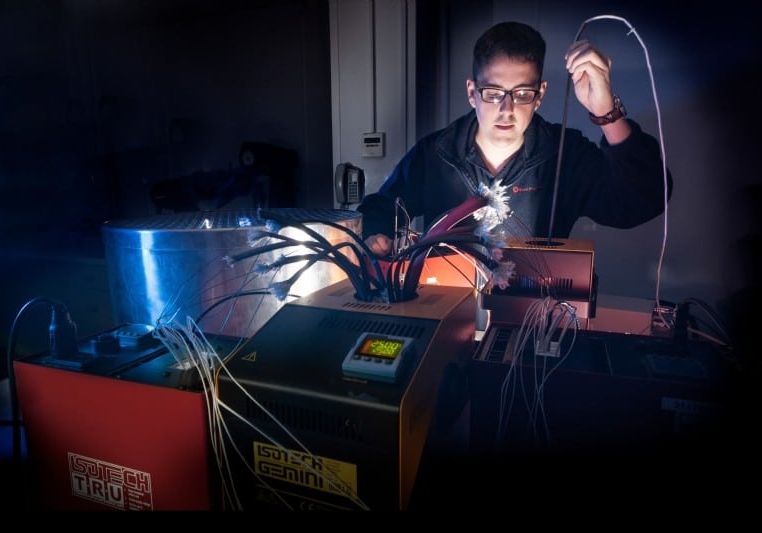
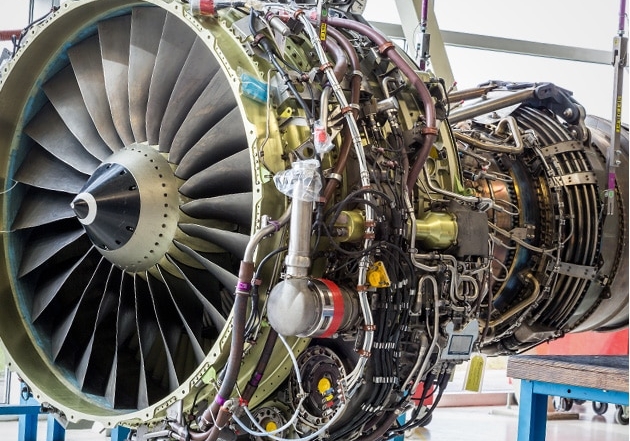
featured case study
A UK Aerospace customer who manufactures high specification thermocouple assemblies for use in jet engines had a problem in that their manufacturing process caused the thermocouple EMF to drift out of International Specification’s... read more